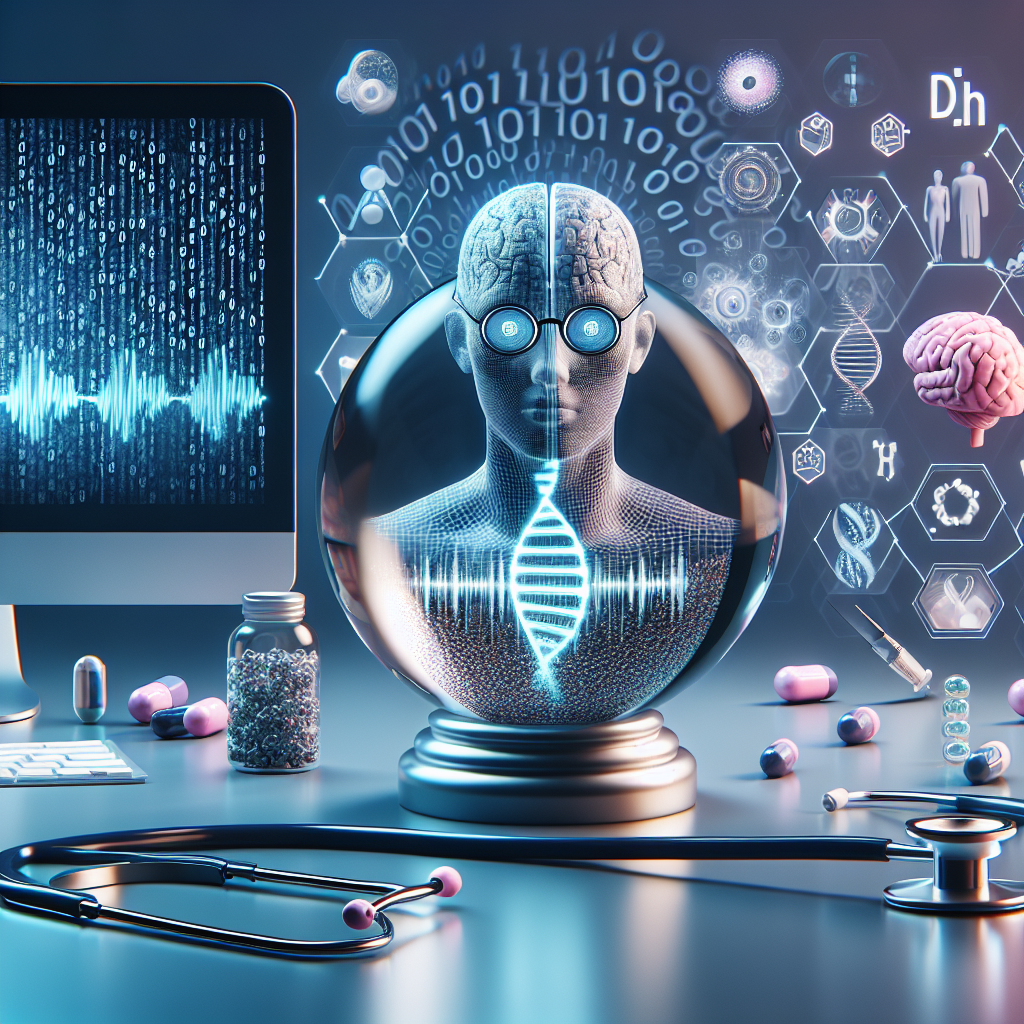Natural Language Processing (NLP) is a branch of artificial intelligence (AI) that focuses on the interaction between humans and computers using natural language. In recent years, NLP has seen significant advancements in various industries, including healthcare. With the increasing amount of digital health data being generated, NLP has the potential to revolutionize healthcare research by enabling the analysis of large volumes of unstructured text data, such as electronic health records (EHRs), clinical notes, research articles, and patient forums.
The Future of NLP in Healthcare Research
1. Improving Clinical Decision-Making: NLP can help healthcare providers make more informed decisions by extracting valuable insights from medical records, patient notes, and other sources of unstructured data. By analyzing this information, NLP algorithms can identify patterns, trends, and correlations that may not be immediately apparent to human clinicians, leading to more accurate diagnoses and personalized treatment plans.
2. Enhancing Patient Care: NLP can also be used to improve patient care by analyzing patient feedback, social media posts, and other sources of patient-generated data. By understanding patient preferences, concerns, and experiences, healthcare providers can tailor their services to better meet the needs of individual patients, leading to improved patient satisfaction and outcomes.
3. Accelerating Research: NLP can automate the process of reviewing and summarizing research articles, enabling researchers to quickly identify relevant studies, trends, and findings. By extracting key information from a large volume of text data, NLP can help researchers stay up-to-date with the latest advancements in their field and accelerate the pace of scientific discovery.
4. Enhancing Clinical Trials: NLP can also be used to improve the efficiency and effectiveness of clinical trials by automating the process of identifying eligible participants, extracting relevant information from medical records, and monitoring patient outcomes. By streamlining these processes, NLP can help researchers recruit participants more quickly, reduce the time and cost of clinical trials, and improve the quality of data collected.
5. Improving Healthcare Communication: NLP can facilitate communication between healthcare providers and patients by automating the process of generating patient reports, discharge summaries, and other clinical documents. By converting spoken or written language into structured data, NLP can help healthcare providers document patient encounters more efficiently and accurately, leading to better continuity of care and improved patient outcomes.
Frequently Asked Questions (FAQs)
Q: How does NLP work in healthcare research?
A: NLP algorithms analyze unstructured text data, such as medical records, patient notes, and research articles, to extract meaningful insights and patterns. By processing and understanding natural language, NLP can help researchers identify trends, correlations, and other valuable information that may not be immediately apparent to human readers.
Q: What are the benefits of using NLP in healthcare research?
A: NLP can help healthcare providers make more informed decisions, improve patient care, accelerate research, enhance clinical trials, and streamline communication between providers and patients. By automating the analysis of unstructured text data, NLP can help researchers extract valuable insights from large volumes of information and make more efficient use of their time and resources.
Q: What are some challenges of using NLP in healthcare research?
A: Some challenges of using NLP in healthcare research include the need for high-quality data, the complexity of medical language, the potential for bias in algorithmic decision-making, and the need for ongoing validation and refinement of NLP models. Researchers must also consider ethical and privacy concerns when using NLP to analyze sensitive health information.
Q: How can healthcare providers and researchers incorporate NLP into their work?
A: Healthcare providers and researchers can incorporate NLP into their work by partnering with data scientists, AI experts, and technology vendors who specialize in NLP. By collaborating with experts in the field, healthcare professionals can leverage the power of NLP to extract valuable insights from unstructured text data and improve the quality of care and research in their respective fields.
In conclusion, the future of NLP in healthcare research is bright, with the potential to revolutionize the way healthcare providers analyze data, make decisions, and communicate with patients. By leveraging the power of NLP algorithms to extract valuable insights from unstructured text data, researchers can accelerate the pace of scientific discovery, improve patient outcomes, and enhance the overall quality of care provided to patients. As NLP continues to evolve and advance, it will be exciting to see the many ways in which this technology can be applied to improve healthcare research and ultimately, the health and well-being of individuals around the world.

